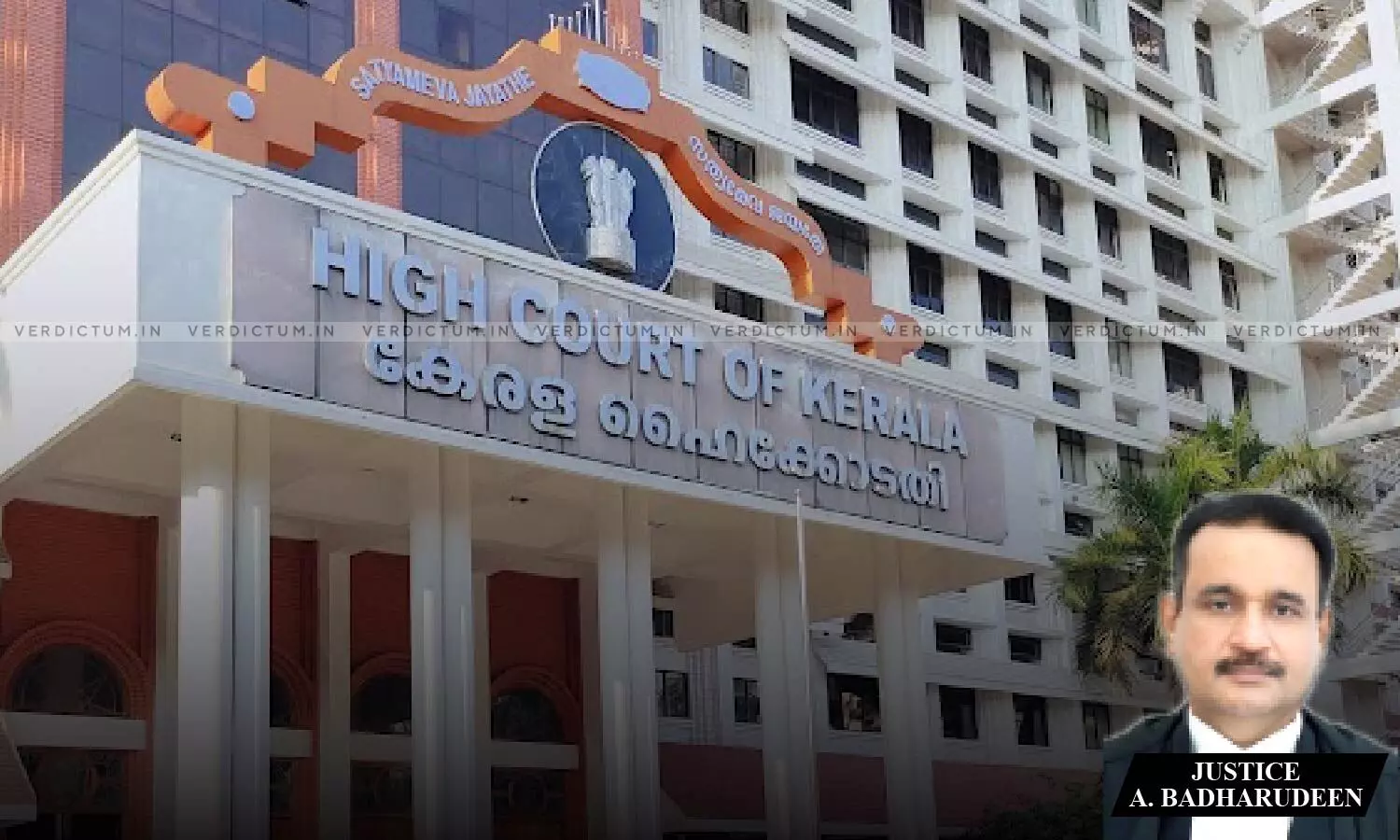
Mere Availability Of More Convenient Alternative Pathway Not A Reason To Deny Easement By Prescription: Kerala HC
 |
|The Kerala High Court held that the mere availability of alternative pathway with more convenience to the dominant tenement is not a reason to deny easement by prescription.
The Court observed thus while dismissing a second appeal that arose out of a suit asserting right of easement by prescription.
The Bench of Justice A. Badharudeen observed, “It is held that availability of alternative pathway with more convenience to the dominant tenement is not a reason to deny easement by prescription if the essentials are pleaded and proved by the plaintiff's. However, availability of even an inconvenient pathway would defeat the claim of easement by necessity”.
Advocate Paul K Varghese appeared for the Appellant.
The Appellant was the First Defendant in the Original Suit, the Plaintiff was the First Respondent, and the Second Defendant was the Second Respondent.
A Second Appeal was filed before the High Court challenging a decree and judgment passed by the Appellate Court whereby the Trial Court’s decision was affirmed. The plaintiff had filed a suit asserting the right of easement by prescription over a pathway. She claimed to have perfected the right of easement by prescription over the pathway, which is the only way available. The defendant attempted to obstruct her use of the pathway, and thus she sought a declaration of the right and a prohibitory injunction. The Trial Court decided in her favour granting the right of easement over the pathway and prohibiting the defendant from obstructing its use.
The Bench noted that to establish an easement by prescription, the plaintiff must prove that they have used the land in question peacefully, openly, and without interruption for at least 20 years. The Plaintiff must also prove that they have used the land as of right, meaning that they believed they had a legal right to use the land.
To establish an easement by prescription under Section 15 of the Act, the Bench held that specific requirements must be met. The Bench noted, “While precising the mandate of Section 15 of the Easement Act, the following ingredients must be pleaded and proved:
(1) There must be pre-existing easement which must have been enjoyed by the dominant owner;
(2) the enjoyment must be peaceable;
(3) the enjoyment must be an easement;
(4) the enjoyment must be as of right;
(5) the right must be enjoyed openly;
(6) the enjoyment must have been for a period of twenty years;
(7) the enjoyment for 20 years must have been without interruption; and
(8) the enjoyment must be openly, peaceable, uninterrupted, as of right, as an easement, without interruption for twenty years, for the beneficial enjoyment of the dominant tenement”.
The Court noted that the plaintiff had met the burden of proof to establish an easement by prescription. The Court observed that the plaintiff had been using the pathway for over 20 years without interruption and that she had always believed that they had a right to use the pathway.
The Court also noted that the condition precedent for entertaining and deciding a second appeal is the existence of a substantial question of law. The High Court must formulate the question and show that it is a substantial question of law. The legal position is no more res-integra on the point that to admit and maintain a second appeal under Section 100 of the CPC, the Court shall formulate substantial question/s of law, and the said procedure is mandatory.
Furthermore, the Court reviewed the evidence and found that the Trial Court and Appellate Court correctly granted an easement in favour of the plaintiff over the B schedule property.
Accordingly, the Court dismissed the Appeal.
Cause Title: Mercy v Agnus Maria EJ (2023:KER:76736)